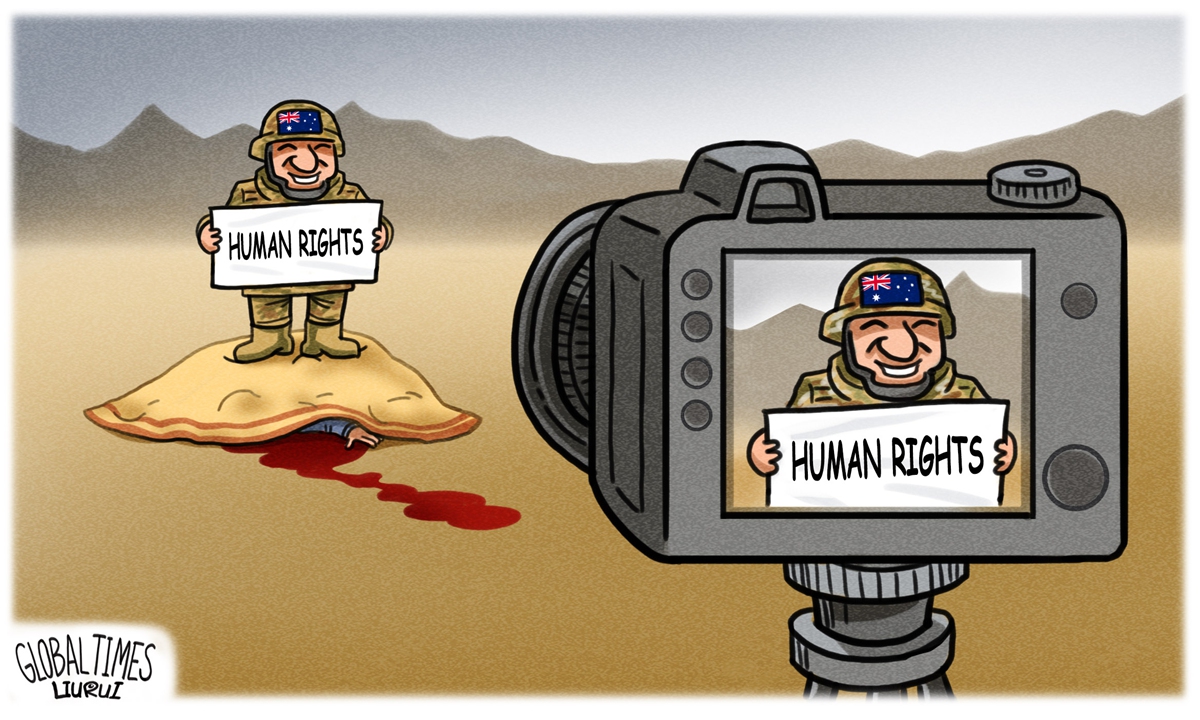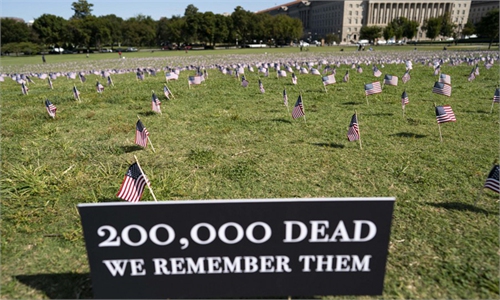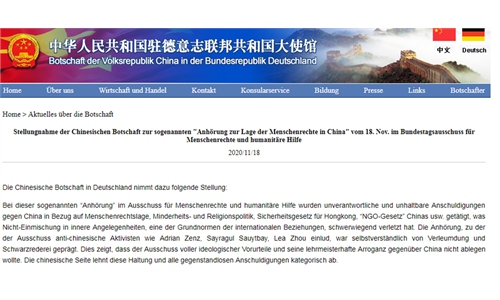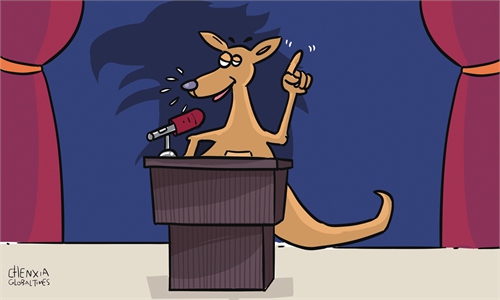
Illustration: Liu Rui/GT
Australia's parliament issued a report on Monday entitled, "Criminality, corruption and impunity: Should Australia join the Global Magnitsky movement?" It articulates support for Magnitsky-style legislation in Australia "to allow for targeted sanctions of individuals who have committed human rights abuses," explaining the sanctions may include banning sanctioned ones from entering the country and freezing or seizure of their financial assets.It is no surprise China was named in the report, claiming "with regard to China, we have allowed this impunity to continue." Some Australian media outlets failed to hide their impatience to target China even before the report was released. The Sydney Morning Herald suggested on Sunday, "The move will place pressure on the government to consider imposing sanctions on Chinese government officials who are responsible for human rights abuses in the Xinjiang region."
In principle, there is nothing wrong with punishing individuals who have violated human rights. But there is, however, one question left unanswered: who gets to determine who is an offender?
Australia may have tossed out an answer. Since it wants Magnitsky-style legislation, following the step of the US, it proves that Canberra is willing to be obedient to Washington, presenting the power to have final say to the US.
Australia is imitating the US at every step in relevant issues, Yu Lei, the chief research fellow at the research center for Pacific island countries of Liaocheng University in East China's Shandong Province told Global Times on Monday. Legislation on human rights can be utilized by US-led Western countries to sanction any developing countries, Yu said, adding "the sanctions can later be expanded to a wider range, from politics and economy to high technologies, with the ultimate goal of consolidating US ideological hegemony and soft power."
As Canberra blindly copies the ideological norms of Washington, it might as well take a look at the human rights situation in this so-called beacon of hope and freedom. From the day George Floyd died from a knee-to-neck restraint by a police officer in May, violent protests have spread across the US. The continuing turbulence has not subsided.
When Australia turns human rights as a weapon against countries it disagrees with, it seems to Chinese people a pirate flattering himself. It is raising the human rights banner on a pile of innocent Afghan civilians' corpses. And it must have overlooked the need to clean up its own country before accusing others. Shall we remind Australia that its immigration detention facilities has been condemned on human rights grounds and have even been compared to concentration camps? It is ludicrous for Canberra to care more about Beijing rather than its own affairs.
Over the past years, China has witnessed historic progress in improving people's livelihood, especially in Xinjiang, which has been constantly placed under the spotlight of Western countries. Yet the West simply likes to play dumb so as to keep finding faults with China on human rights issues.
Neither the US nor Australia has the final say on human rights. If the West, filled with stains themselves, keeps attacking China, "we could also turn to the weapon of law to sanction Western governments, political parties, politicians and NGOs who have violated our version of human rights," Yu said. It may be time to promote the development of a real universal value of human rights and justice.



